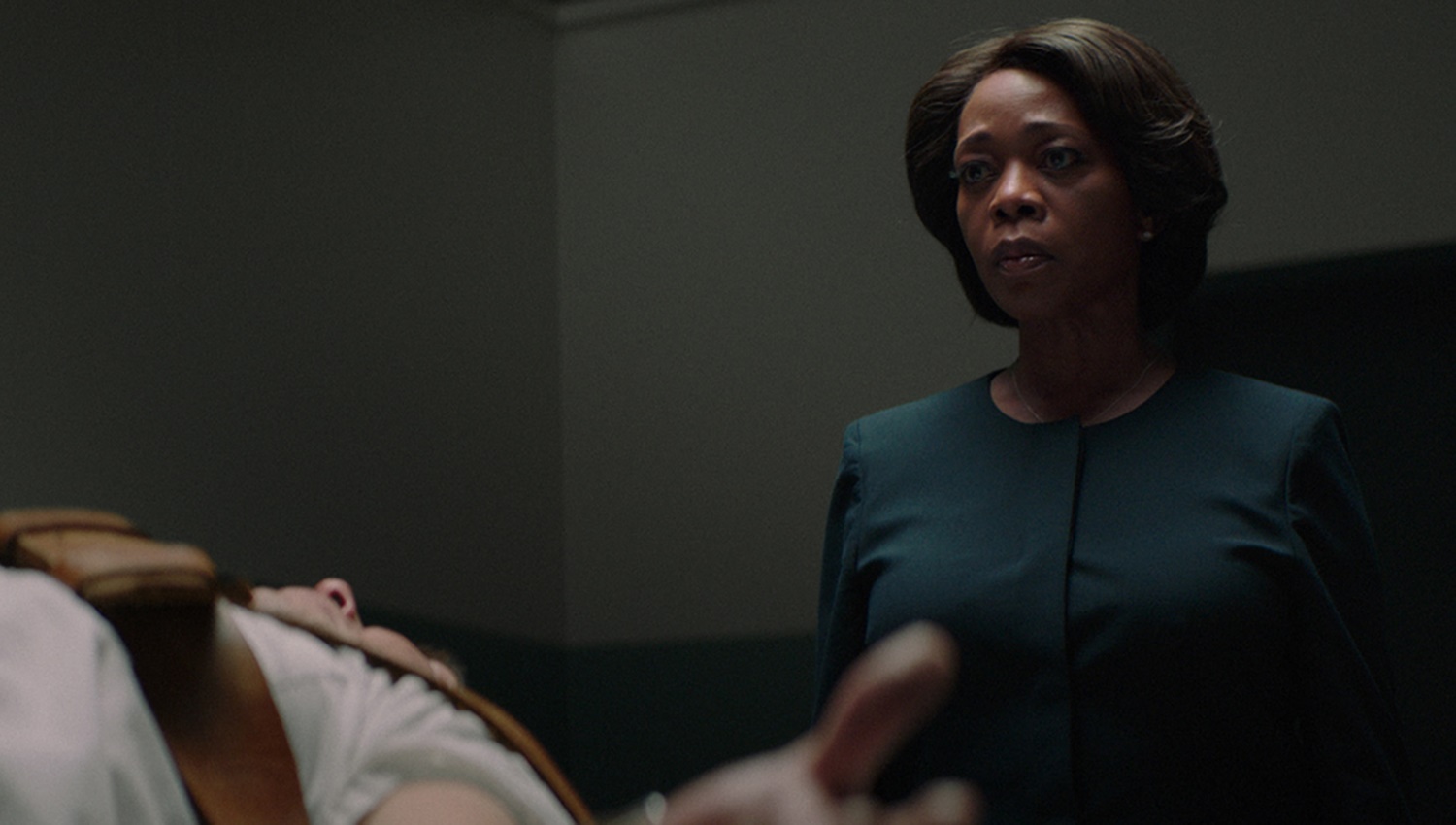
Clemency
Dustin Chase
“Can I get you anything” is an odd question to ask someone moments away from an execution. “Clemency,” the new film starting Alfre Woodard attempts to put the viewer in a place they haven’t been before, inside the mind of a death row warden. From the shocking opening moments of a nearly botched lethal injection (conjuring up “Green Mile” flashbacks) to the riveting final moments as a no-nonsense professional embraces emotion, “Clemency” is a sobering drama. The films pacing and intentional use of silence might be too uncomfortable for some, and the subject matter of the death penalty too controversial for others.
As she oversees her 12th execution, Warden Bernadine Williams (Woodard) has almost completely withdrawn from humanity. She uses alcohol to drown whatever personal feelings that conflict with her, while she strives to give respect and dignity to each inmate. “You can’t save the world,” she confesses to her husband Jonathan (Pierce), in a rare moment of vulnerability concerning her work. The latest inmate up for injection (Hodge) has almost shut down emotionally, neither Chaplin Kendrick(O’Neill), his lawyer Lumetta (Schiff) nor anyone else can comfort him. As a crowd of protesters grow outside the prison, and legal efforts to halt is execution, time is running out for both Woods and Williams.
Woodard is afforded little dialogue to express her character, it’s an internal performance that the Oscar-nominee delivers with a stout ferocity.
Writer/director Chinonye Chukwu doesn’t divulge all the details of “Clemency.” How Woodard’s character came to this position, and whether Hodge’s character is innocent isn’t the most important detail. It’s more about the role of a warden who often finds herself caught between the system and duty. Yet how can a humane person not be affected when their job is overseeing the final moments of another person’s life. Bernadine Williams desperately tries to numb herself so she can be the tough as nails, “no exceptions” leader a prison like this depends on to function. She constantly relieves these strong men of duty because they can’t carry out the job function. Woodard is afforded little dialogue to express her character, it’s an internal performance that the Oscar-nominee delivers with a stout ferocity.
What type of person does it take to be an effective warden? How does this profession effect someone in their personal lives? Woods prison uniform has “Dept. of Corrections” stamped on the back, but what is being corrected here when the person just dies in the end? Subtle messages, open ended questions are what Chukwu offers in “Clemency.” However it’s the currency of false hope that each character offers the inmates that degrade their own since of purpose and conscience. Asking an inmate “Can I get you anything” moments before his execution has more to do with easing the conscience of the executioner, than comforting the inmate.
Final Thought
Woodard’s subtle calculated performance combined with riveting moral dilemma give 'Clemency it's bite.
